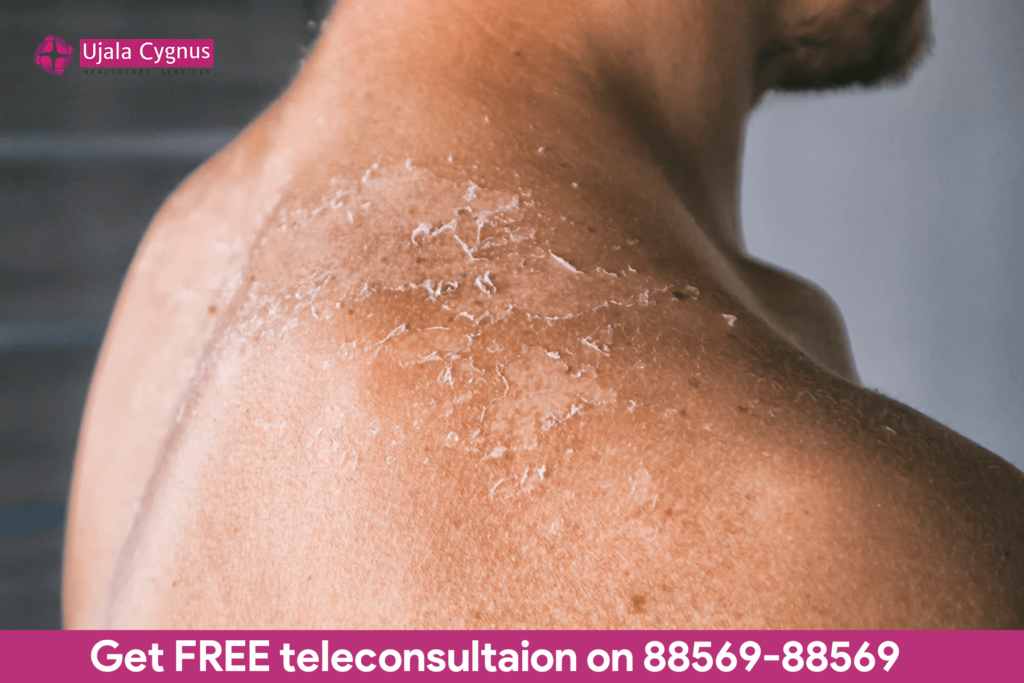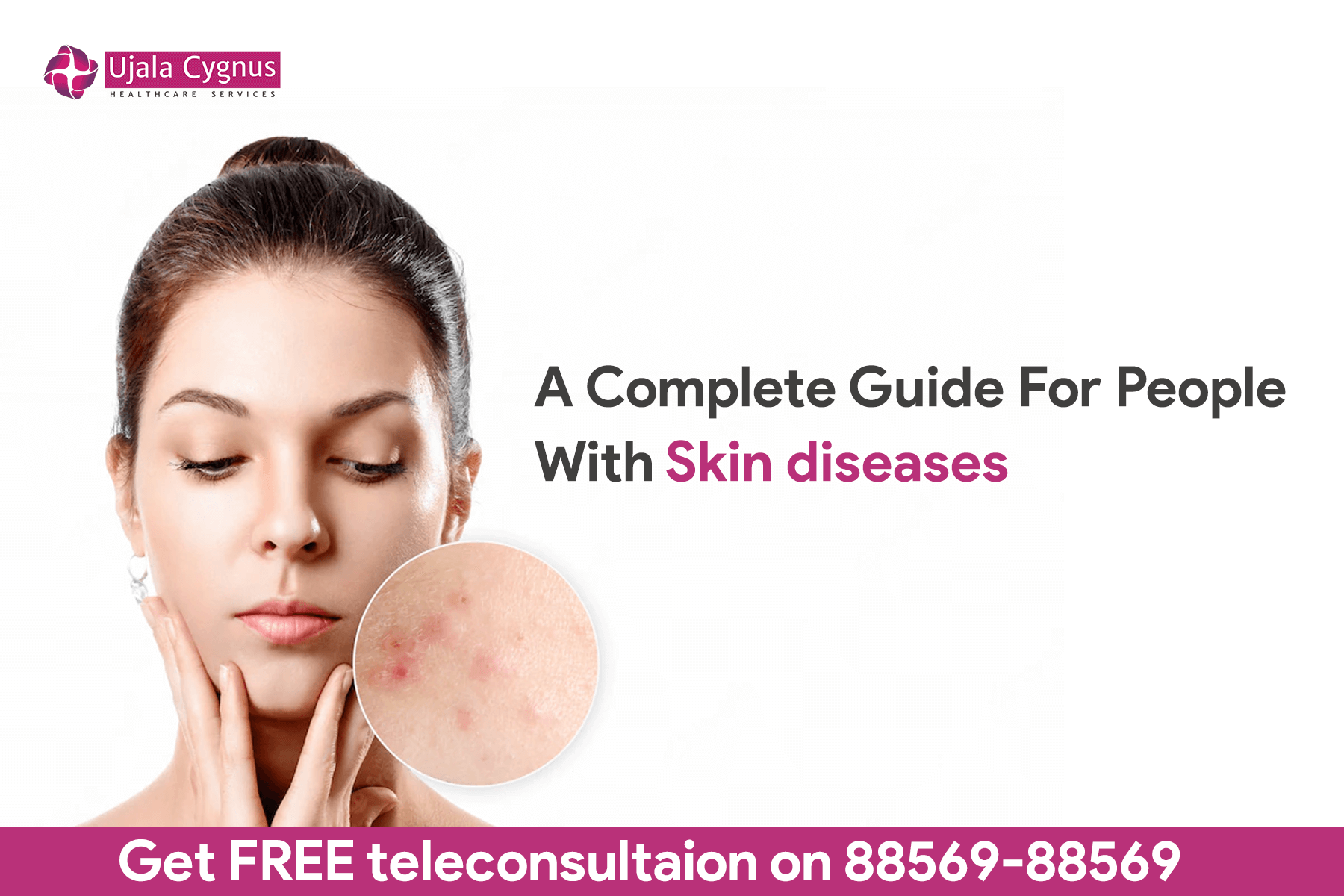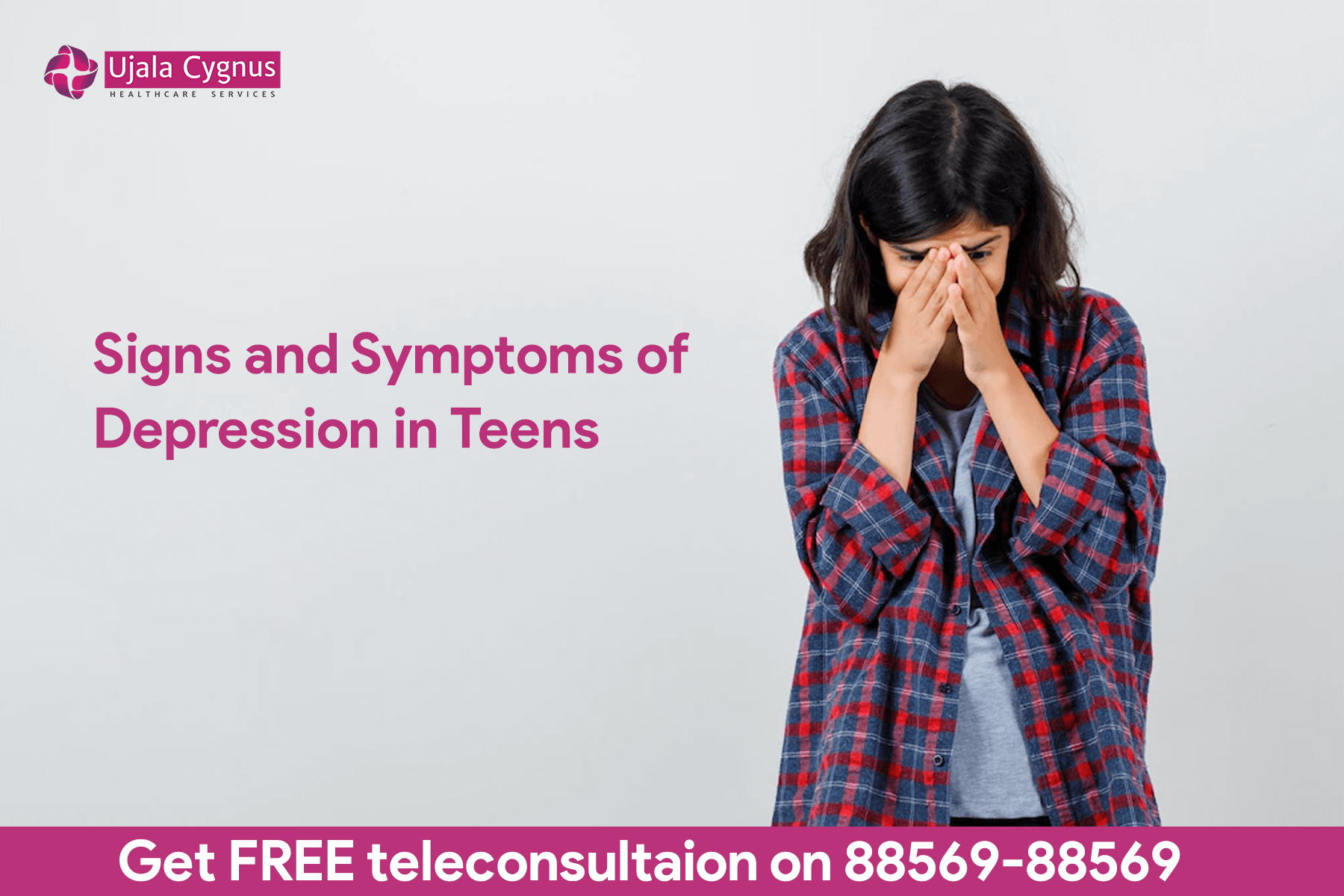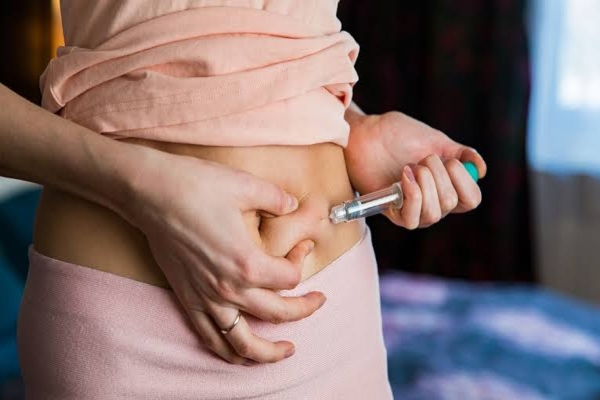Skin diseases are disorders that affect the surface of your skin. Several conditions may cause rashes, inflammation, itching, and other skin problems. Some skin problems are caused by genetics, while lifestyle factors cause others. Medication, lotions, ointments, and lifestyle changes may treat skin diseases.
This blog contains all the information about skin diseases.
What are skin diseases?
Your skin is the large organ that protects your body. Your skin has numerous functions. It works to:
- Keep fluids in your body to avoid dehydration.
- Assist you in feeling sensations such as pain or temperature.
- Protect against bacteria, viruses, and other infection-causing agents.
- Maintain a constant body temperature.
- Synthesize (produce) vitamin D in response to sun exposure.
Skin diseases include all conditions that block or irritate your skin. Often, skin conditions cause rashes or other changes in your skin’s texture.
What are the common skin conditions?
Some skin diseases and conditions are minor, and others cause severe symptoms. Some of the common skin diseases include:
- Acne, clogged skin follicles, and a buildup of oil, bacteria, and dead skin in your pores.
- Alopecia areata, losing your hair in patches.
- Atopic dermatitis (eczema) is a dry, itchy skin condition that leads to swelling, cracking, and scaliness.
- Psoriasis is a scaly skin condition that may swell or feel hot.
- Raynaud’s phenomenon is a condition in which blood flow to your fingers, toes or other body parts is reduced on a regular basis, resulting in numbness or a change in skin colour.
- Rosacea is characterized by flushed skin, thick skin, and pimples, usually appearing on the face.
- Skin cancer, uncontrolled proliferation of abnormal skin cells.
- Vitiligo is a condition in which pigment is lost in patches of the skin.
What are rare skin diseases?
Many rare skin diseases are inherited, which means you get them from your parents. Some rare skin diseases are:
- Actinic prurigo (AP), Itchy rash induced by sun exposure.
- Argyria, changes in skin pigmentation due to silver deposition in your body.
- Chromhidrosis, coloured sweat.
- Epidermolysis bullosa is a connective tissue disorder characterized by fragile skin that easily blisters and tears.
- Harlequin ichthyosis is a skin condition characterized by thick, rigid patches or plates that appear at birth.
- Lamellar ichthyosis is a waxy skin covering that sheds in the first few weeks of birth, exposing scaly, red skin underneath.
- Necrobiosis lipoidica is a rash on the lower legs that can lead to ulcers (sores).
What causes skin diseases?
A variety of lifestyle factors can cause skin disease. Your skin may be affected by underlying health issues. The following are common causes of skin diseases:
- Bacteria are trapped in your pores or hair follicles.
- Conditions that affect your thyroid, renal or immune system disorders.
- Contact with environmental triggers like allergies or the skin of another person.
- Genetics
- Fungus or viruses are living on your skin.
- Medications for inflammatory bowel disease (IBD).
- Diabetes
- Sun

What are the symptoms of skin diseases?
The symptoms of skin diseases vary significantly depending on the illness. Skin diseases do not always cause skin changes. For example, wearing ill-fitting shoes can cause a blister. However, when skin conditions show up with no known cause, they may be linked to an underlying illness.
Generally, skin diseases and conditions may cause:
- Discoloured skin spots (abnormal pigmentation).
- Rough skin
- Open sores and lesions
- Cracking skin
- Rashes, possibly with itchiness or pain.
- Red or white pus-filled bumps.
- Scaly or dry skin
If you and your loved ones face any of the above symptoms, get free teleconsultation with our expert dermatologist call 88569-88569.
How is the skin disease diagnosed?
A healthcare professional can often diagnose a skin problem by looking at your skin. If examining your skin does not provide precise results, your doctor may recommend tests such as:
- Biopsy, cutting a small sample of skin to analyze under a microscope.
- Culture, taking a skin piece to test for bacteria, fungi, or viruses.
- Skin patch test, Testing for allergic reactions on the skin with small amounts of substances.
- An ultraviolet (UV) light is used to examine your skin’s pigment in a black light examination (Wood light test).
- Diascopy is the process of pressing a microscope slide against a skin patch to see if the colour of the skin changes.
- Dermoscopy is the diagnosis of skin lesions using hand-held equipment called a dermatoscope.
- Tzanck test examines the fluid from a blister to see if it contains herpes simplex or zoster.

How are skin diseases treated?
Many skin diseases are treatable. Depending on the condition, a dermatologist (skin doctor) or other healthcare providers may recommend:
- Antibiotics
- Antihistamines.
- Skin resurfacing with lasers.
- Medicated Creams and ointments.
- Moisturizers.
- Oral medications.
- Steroid tablets, lotions, and injections.
- Surgical operations.
What are the different ways to prevent skin disorders?
Some skin disorders cannot be avoided. For example, there is no reason to alter your genetics or prevent an autoimmune condition.
You can take steps to avoid communicable or infectious skin diseases. You may prevent infectious skin diseases or reduce their symptoms if you:
- Avoid sharing utensils, household items, or cosmetics.
- Disinfect items used in public areas, such as gym equipment.
- Consume plenty of water and eat a healthy diet.
- Limit your exposure to strong chemicals.
- Sleep seven to eight hours each night.
- To avoid sunburn and other sun damage, use sunscreen.
- Hand washes with soap and water on a regular basis.
Conclusion
Some skin diseases are harmless, while others can cause discomfort and distress. It is important to remember that no one has to deal with their skin issues alone. You can team up with our expert dermatologist call 88569-88569 can help ensure a correct diagnosis and the best possible treatment plan.
Frequently Asked Questions (FAQs) for Skin Diseases
1. How do you get rid of skin disease?
Depending on the problem, antibiotics may be recommended by a dermatologist (a doctor specializing in the skin) or another healthcare practitioner.
- Antihistamines
- Skin resurfacing with lasers
- Medicated creams, ointments, and gels
- Moisturizers
- Medications are given orally (taken by mouth)
- Steroid tablets, lotions, and injections
- Surgical operations
2. Which herbs are good for the skin?
Here are some skin-friendly plants that you may grow in your own garden.
- Camomile
- Sage
- Mint
- Aloe vera
- Lavender
- Calendula
- Rosemary
3. Can stress cause skin problems?
Stress can also cause skin problems. For example, Psoriasis, rosacea, and eczema, can be made worse by stress. Hives and other types of body rashes can develop, as well as a flare-up of fever blisters.
4. Which flower is good for skin?
Chamomile is a miracle flower for everyone concerned with skincare. Anti-inflammatory, antifungal, antibacterial, and antiseptic properties are all present. These properties assist the skin in regaining its suppleness, reducing redness, and soothing the skin.
Ujala Cygnus Healthcare Group has 16 hospitals. Kanpur, Rewari, Kashipur, Varanasi, Sonepat, Panipat, Kurukshetra, Nangloi in Delhi, Rama Vihar in Delhi, Kaithal, Bahadurgarh, Karnal, Moradabad, Haldwani, and Agra. You can book an appointment at your nearest Ujala Cygnus Hospital for any health issue treatment. For any query, you can give a missed call on 88569-88569 and get a free consultation over the phone.













